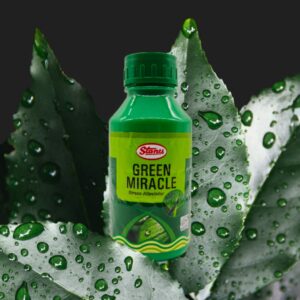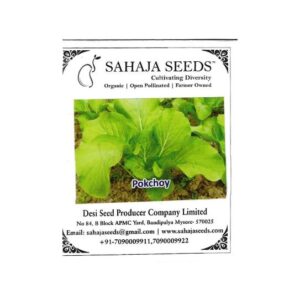No products in the cart.
Vegetables
Sahaja Red Amaranth
Elevate your garden with our premium Red Amaranth seeds, selected for their vibrant color and exceptional flavor. Thriving in various conditions, these seeds promise lush foliage and abundant harvests. From salads to stir-fries, Red Amaranth adds nutrition and visual appeal to every dish. Start your garden journey with us today and enjoy the beauty and flavor of homegrown Red Amaranth.
₹40.00
Amaranthus cruentus, Red Leaf Amaranth Seeds. Non-GMO, open-pollinated annual thriving in warm weather. Also recognized as Red Ocean Amaranth, this vibrant red leaf vegetable offers abundant health benefits and is well-suited for effortless cultivation by the everyday gardener. Widely favored as a microgreen, it showcases a rich crimson hue and a robust yet gentle flavor that is sure to delight.
Cultivating Non-GMO All Red Leaf Amaranth Vegetable Seeds
Initiate the growth of amaranth seeds indoors 6-8 weeks before the final frost. Sow 4-5 seeds at a depth of 0.25 inches in consistently moist, average soil, basking in full sun. All Red Leaf Amaranth typically sprouts within two weeks or less, making it easily adaptable for transplantation into either a garden or a container.
Throughout the summer, All Red Leaf Amaranth will continually flourish, producing fresh leaves. However, it succumbs to the first hard frost. When starting indoors, ensure seedlings receive direct sunlight or ample brightness from a grow light to prevent legginess. In zones 9-10, consider alternate sowings for a perennial growth pattern. For a more compact and bushy appearance, trim the plant back to knee height. Note that Amaranth does not typically endure winter well.
In the Vegetable Garden with All Red Leaf Amaranth
Beyond its practicality, All Red Leaf Amaranth boasts beauty, making it a fitting addition to vegetable gardens with an aesthetic focus. It thrives alongside corn, peppers, tomatoes, or eggplants, contributing to increased pest resistance through companion planting.
Harvesting All Red Leaf Amaranth
The leaves, reminiscent of spinach, are commonly consumed either fresh or cooked. Employ a cut-and-come-again approach by plucking individual leaves or harvest the entire plant for consumption. For sustainable harvesting, refrain from collecting more than one-third of the plant at a time to preserve its vitality. If opting for a full harvest, cut down to soil level. While the seeds are occasionally harvested and consumed, cooking is necessary before consumption.
Insights into All Red Leaf Amaranth Garden Seeds
Although Amaranth is safe for human consumption, caution is advised for pets, particularly dogs. Prevent your pet from consuming this plant.
Tips From Our Gardeners
“This easy-to-grow plant is a no-brainer for those looking for an ornamental and edible garden with plants that are just as beautiful as they are delicious!
- Variety: Our red amaranth seeds are selected from premium varieties known for their vibrant red foliage and excellent flavor.
- Germination Rate: Tested for high germination rates to ensure successful seedling establishment and vigorous growth.
- Growth Habit: Produces lush foliage with striking red coloration, forming compact plants suitable for both garden beds and containers.
- Adaptability: Well-suited to various growing conditions, including full sun to partial shade and a wide range of soil types.
- Sowing Instructions: Clear and concise sowing instructions provided for easy planting and cultivation.
- Harvesting Time: Ready for harvest approximately 4-6 weeks after sowing, with leaves at their peak tenderness and color intensity.
- Culinary Uses: Versatile in the kitchen, red amaranth can be enjoyed raw in salads, stir-fried, sautéed, or steamed as a nutritious side dish or main course ingredient.
- Nutritional Content: Rich in vitamins (such as vitamin A and vitamin C), minerals (including iron and calcium), and antioxidants, offering numerous health benefits.
- Packaging: Packaged in moisture-resistant containers to maintain seed viability and freshness, with detailed labeling for easy identification.
- Quality Assurance: Our red amaranth seeds undergo rigorous quality control measures to ensure purity, viability, and adherence to industry standards, providing confidence to gardeners and growers alike.
Based on 0 reviews
Be the first to review “Sahaja Red Amaranth”
You may also like…
-
Vegetables
Sahaja Green Amaranth Seeds
Elevate your garden with our premium Green Amaranth seeds, selected for their vibrant color and exceptional flavor. Thriving in various conditions, these seeds promise lush foliage and abundant harvests. From salads to stir-fries, Green Amaranth adds nutrition and visual appeal to every dish. Start your garden journey with us today and enjoy the beauty and flavor of homegrown Green Amaranth.
SKU: SH014 -
Stimulants & PGR
T. Stanes Green Miracle
Green Miracle functions primarily on the principle of reflecting the sun’s rays. Applied as a foliar spray, it forms a thin glassy film-coat, which reflects incident light more than it would occur under normal conditions. This prevents the thermic effect of light on plant tissues.
SKU: TS006 -
Vegetables
Sahaja Coriander Seeds
Coriander seeds, harvested from premium coriander plants, boast a balanced flavor profile of citrusy zest, earthy undertones, and subtle sweetness. Versatile in culinary applications, they enhance dishes from various cuisines. Packed with antioxidants and traditionally used for digestive wellness, these seeds are meticulously stored for freshness, ensuring a delightful culinary experience with every use.
SKU: SH012 -
Vegetables
Sahaja Basil Green Seeds
Green basil leaves have a heavy fragrance that is mildly spicy and extremely aromatic. It is traditionally used to make pesto and, in particular, tomato-based dishes. The leaves are very wide for basils, reaching up to 2 inches in length. In the sun, it is slow to bolt (go to seed). One way to tell the varieties apart is that sweet basil has pointed leaves, while green basil has much rounder leaves and a bushier plant.
SKU: n/a










There are no reviews yet.